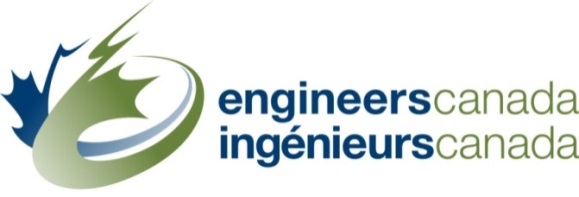Overview
The latest conference schedule is available on Oxford Abstracts.
June 17-21, 2023, be inspired by the Okanagan through its surroundings, culture, and nimble post-secondary engineering institutions that embrace exceptional engineering education and research. UBC Okanagan and Okanagan College provide intimate and dynamic environments to co-host the proposed 2023 Canadian Engineering Education Association Annual Conference.
Conference Theme and Key Elements
Engaging students in their learning impacts students; and those students will impact their surroundings. Within the theme of engagement and impact, key elements are:
- Leadership – how various learning practices and opportunities support students’ development as engineering leaders in their communities, within academia and outside of it.
- Sustainability – how sustainability informs teaching practices and is used to engage students with current societal calls for sustainable design.
- Entrepreneurship and Design – how incorporating entrepreneurship education into engineering courses and programs support students in their entrepreneurial ambitions and efforts.
- Diversity and Inclusivity – how diversity and inclusivity are informing the teaching practices of engineering, and the impact their implementations have on students.
Registration
Click here for the conference registration page
Conference Registration fees (do not include 5% GST)
Conference Registration
Early-Bird Rates for CEEA-ACÉG Members – valid until May 15:
- Professional CEEA-ACÉG member Early-Bird – $650
- Professional CEEA-ACÉG member (Diploma and Transfer Institution) Early-Bird – $550
- Student CEEA-ACÉG member Early-Bird – $250
Regular Conference Registration Options – valid May 16 – June 17:
- Professional CEEA-ACÉG member – $750
- Professional CEEA-ACÉG member (Diploma and Transfer Institution) – $650
- Student CEEA-ACÉG member – $300
- Non-Presenting Undergraduate Student – $100
One-Day Registration Fees:
- Monday Only, Tuesday Only, or Wednesday Only Registration – $350
- MSGCEE registrants (Tuesday only) – $250
Pre-Conference Activities Registration:
Saturday Events:
- Full-day IEER+IET Workshops (any combination)
- Professional CEEA-ACÉG member – $225
- Student CEEA-ACÉG member – $50
- Non-CEEA-ACÉG member – $350
- Half-day IEER or IET Workshop (can be done in morning with optional Syilx Learning on the Land in the afternoon)
- Professional CEEA-ACÉG member – $160
- Student CEEA-ACÉG member – $40
- Non-CEEA-ACÉG member – $225
- Syilx Learning on the Land activity in the afternoon – free (through the support of the D2L Innovation Guild)
Sunday Events:
- Conference Workshops
- CEEA-ACÉG member – $150
- Non CEEA-ACÉG member – $200
Conference Registration Add-Ons:
- Extra Sunday Reception Adult Ticket – $35
- Extra Sunday Reception Child Ticket – $20
- Extra Banquet Ticket – $100
Registration Links and details
- CEEA-ACÉG membership: https://ceea.ca/membership/
- Register for the conference here: https://ceea.wildapricot.org/event-5216155
- Conference policies (cancellation, refund, and COVID-19 protocols): https://ceea.ca/2023-conference-policies/
- Saturday special event descriptions: https://ceea.ca/saturday-special-events/
- Sunday workshop schedule and descriptions (downloadable) here: https://ceea.ca/wp-content/uploads/2023/03/Workshop-Schedule-Master.pdf
Please contact [email protected] if you need to make changes to your conference registration (including adding or changing workshops). Thank you.
Venue
The Canadian Engineering Education Association (CEEA-ACÉG) 2023 conference will be jointly hosted by the University of British Columbia, Okanagan and the Okanagan College, at Kelowna!
Kelowna is located on the traditional, ancestral, unceded territory of the syilx (Okanagan) people. It is located along the beautiful shores of Okanagan Lake, in the heart of the stunning Okanagan Valley. The lake offers opportunities for boating, swimming or fishing, while nearby mountains attract hikers, skiers and outdoor enthusiasts. Golfers tee-it-up at our 14 courses, and bustling urban centres offer restaurants with delectable food, award-winning wines, craft beers and ciders, local shopping, museums, live entertainment and cultural festivals.
Learn more about Kelowna.
Conference Location
Getting to Kelowna
The Kelowna area is served by the Kelowna International Airport (https://ylw.kelowna.ca/).
It is also possible to drive from Vancouver where you will pass through the stunning Coast Mountains (allow 5 hours) or Calgary through the breathtaking Rocky Mountains (allow 8 hours). See this driving guide for more information.
Getting to the Conference Venues
The CEEA-ACÉG 2023 pre-conference workshops are hosted by Okanagan College (June 18), and will take place on Okanagan College campus, which is located 14 kilometers from the Kelowna International Airport (YLW).
Okanagan College Kelowna Campus
1000 K. L. O. Rd,
Kelowna, BC V1Y 4X8
The CEEA-ACÉG 2023 main conference is hosted by UBC Okanagan (June 19-21), and will take place on UBC Okanagan campus, which is located just 2 kilometers from the Kelowna International Airport (YLW).
University of British Columbia Okanagan
EME4242 – 1137 Alumni Ave
Kelowna, BC V1V 1V7
There are a variety of travel options available to reach either location from the airport – Check them out.
Parking
Paid Daily Parking is available at the conference venues.
UBC Okanagan – Check Here.
Okanagan College – Check Here.
* Guests staying at UBC Okanagan Monashee residence receive complimentary parking for UBCO campus. You are required to register your license plate at check-in to not incur any parking tickets.
Accommodations
Lodging in Kelowna B.C. will exceed your expectations, wants, and needs. See what Kelowna has to offer. From outdoor camping and cozy, bed and breakfasts to classy resorts and Kelowna hotels, Kelowna offers all that you need and more to make your stay in Kelowna B.C. relaxing and enjoyable. UBC Okanagan is happy to accommodate you on campus with the following options:
UBC Okanagan – Monashee Residence
Studio Suite: $104 per night
One Bedroom Suite: $135 per night
Four Single-Bedroom Suite: $185 per night
Family Suite (one queen + three single bedrooms): $194 per night
Details on the room amenities can be found here. Check-in time is 4:00 PM; check-out time is 11:00 AM. To reserve the room, click here, or call us at 1-888-318-8666. All reservation requests will receive an electronic confirmation.
Parking on campus for accommodation guests is complimentary. You only have to register your license plate at check-in. The closest parking lot for the Monashee suites is lot R.
Note: Preferred room rates for CEEA2023 guests are in limited supply, and are allotted on a First Come, First Serve basis. While supply lasts, all rooms shall be offered at the listed rates and are subject to a 3% Municipal Sales Tax, and any additional applicable taxes, subject to change. in Canadian funds and are net, non-commissionable.
Four Points by Sheraton Kelowna Airport
Traditional Queen Room: $179 CAD per night
Additional information for about the reservation can be found here. If you have questions or need help with the link, please do not hesitate to ask.
Note: Special group rate for Canadian Engineering Education Association attendees is reserved for a limited supply, at the above rate and are subjected to tax. Pre & Post nights available upon request. The last day to book with the special group rate, while supplies last, is Thursday, May 18, 2023.
Other Accommodation Options Nearby Include:
Hampton Inn & Suites by Hilton Kelowna Airport: “Nestled among the stunning mountains and lakes of British Columbia, our new hotel is right across the highway from Kelowna International Airport. Several golf courses, UBC Okanagan, and Okanagan Lake access are within 10 km. Free breakfast, free WiFi, and 24-hour airport shuttle are included.” https://www.hilton.com/en/hotels/ylwbchx-hampton-suites-kelowna-airport/
Things to Do in Kelowna
Summer officially arrives towards the end of June, bringing with it lots of fun and sun. Things start to pick up as the month progresses, with summer being the busiest season for visitors in Kelowna and the Okanagan. Check them out here.
Be sure to download a free Kelowna Key Pass by Tourism Kelowna. The Kelowna Key Pass is a mobile savings and discount pass for many local restaurants, wineries, accommodations, tours, and attractions. The Kelowna Key Pass flyer provides all the instructions for downloading the Kelowna Key Pass and see all of the included venues and offerings.
COVID-19 Travel Information
“As of July 19, 2022, Proof of vaccination is no longer required to board a plane or train in Canada. This applies only to travel within Canada and flights or trains leaving Canada. If you are entering Canada from another country, you must continue to follow all entry requirements such as vaccination and testing. Vaccination against COVID-19 is still required for passengers and crew on cruise ships.”
Check the BC Centre for Disease Control for latest updates – Check Here
Webpage adapted from Tourism Kelowna, City of Kelowna, Kelowna International Airport, BC CDC, UBC Okanagan, Okanagan College.
Papers
Call for Papers
Downloads
- Download the Call for Papers for the 2023 CEEA-ACÉG Annual Conference
- Download the Author Guidelines for CEEA-ACÉG Structured Abstracts
- Download the Author Guidelines for CEEA-ACÉG Papers
Paper Management Portal (Oxford Abstracts)
All paper management, including submission of abstracts and papers, is done through Oxford Abstracts.
Overview
The 2023 Annual Conference of the Canadian Engineering Education Association – Association canadienne de l’éducation en génie (CEEA-ACÉG) will be jointly hosted by Okanagan College and the University of British Columbia Okanagan in the city of Kelowna located in the beautiful Okanagan valley June 17-21, 2023. Okanagan College and the University of British Columbia Okanagan acknowledge that the conference will be organized and held on the ancestral, traditional, and unceded territory of the Syilx Okanagan Nation. We recognize, honour, and respect Indigenous peoples in the region, past, present, and future.
The theme of the conference is “Engagement and Impact.” Social Engagement and Experiential Learning are understood to be key factors in successful Engineering Education. “Engagement” refers to the ways in which engineering education practices engage students with the learning experience both within the classroom and outside of it. “Impact” refers to the impact that engineering education practices have on students and the impact students have on their surroundings through their learning activities.
Call for Abstracts
We invite papers written in English or French in all areas of engineering education, especially on the conference theme. Topics include but are not limited to:
- Leadership – Impact of various learning practices and opportunities on students’ development as engineering leaders in their communities, within academia and beyond.
- Sustainability and Design – Effect of sustainability in improving teaching practices and its usage to engage students with current societal calls for sustainable design. Design as the method of identification and solving engineering problems is considered the central function of engineering practice that needs to be explored in the context of today’s engineering design courses.
- Entrepreneurship – Influence of incorporation of entrepreneurship education into engineering courses and programs that support students in their entrepreneurial ambitions and efforts.
- Equity, Diversity and Inclusion – Importance of equity, diversity and inclusion in informing the teaching practices of engineering, and the impact their implementations have on students. Beyond the classroom, the impact of cultural practices of engineering education on students, including efforts for retooling and decolonializing the Iron Ring Ceremony.
Submitted papers need to be aligned with one of the following streams:
- Engineering Education Practice (“Practice”): includes accounts and reflections of the practitioner’s own innovations, experiences, and evidence-based interventions in their engineering education context. The goal is to share the practitioner’s experiences.
- Engineering Education Research (“Research”): includes reports of scholarly investigations, critiques, meta-analyses, literature reviews, and empirical development of methods, tools, and frameworks. The goal is to generate transferable or generalizable knowledge which can be applied to other contexts.
All full-length papers will undergo a full peer review process to be accepted for the conference.
Session Types
Sessions typically run for about 90 minutes and will include the following presentation modes:
- Podium Talks (10 minutes presentation + 10 minutes Q&A) – Aim to briefly explain the author’s work through presentation slides with questions from the audience. Accepted Podium Talks will be required to submit a full-length paper.
- Lightning Talks (5 minutes presentation + 5 minutes Q&A) – A rapid version of a podium talk that focuses more on the idea and the results and is well suited for works-in-progress and early research findings. Authors who deliver their work in a lightning talk presentation have the option of submitting a full paper if they wish their work to be published in the CEEA-ACÉG proceedings.
- Poster Presentation – These presentations are useful for active and longer interaction between presenters and the audience. Posters are to be concise with emphasis on a graphical representation of ideas and results. Authors who deliver their work in a poster presentation have the option of submitting a full paper if they wish their work to be published in the CEEA-ACÉG proceedings.
- Panel Discussion – These sessions facilitate active conversation between presenters and audiences from diverse backgrounds. During abstract submission, authors will have to identify and propose at least three other panelists and a moderator. The abstract should, in addition, focus on the plan for moderating audience interaction. Each panelist will have opening and closing remarks, between which longer discussions within the panel and with the audience take place. Authors are encouraged to select discussion topics that are closely relevant to the conference theme and streams. We also encourage submissions from the CEEA-ACÉG Special Interest Groups.
- Collaboratorium (Unconference) – These sessions consist of a group of presenters seated in a roundtable, who will then present a discussion topic followed by a group discussion over that topic. Notes will be taken and participants move to another roundtable of their choice. Typically, there would be 3-5 roundtable sessions happening in parallel in the same room. These sessions help brainstorm about persisting educational challenges and enable the free flow of thoughts from participants with diverse backgrounds. In their submission, authors are asked to explain how many discussion topics will be included in the session and how long each topic discussion will take. Authors are encouraged to select discussion topics that are closely relevant to the conference theme and streams. We also encourage submissions from the CEEA-ACÉG Special Interest Groups.
Abstract Requirements
New this year, authors are invited to submit a short anonymized structured abstract (500 words) via Oxford Abstracts by November 28, 2022, Monday, along with the appropriate stream and a ranked list of preferred presentation modes. Authors are to refer to the Author Guidelines for CEEA-ACÉG Structured Abstracts in preparing their submission. After review, details specific to the presentation mode will be communicated to the authors. We invite submissions in English or French. Authors who would like to suggest presentation modes other than those listed above are invited to contact the conference Organizing Committee by email ([email protected]).
For practice papers the structured abstract should follow these labeled sections:
- Background — Briefly describe the context and motivation for the work.
- Purpose — Summarize the purpose (aim) of the project/intervention/practice.
- Approach – Provide an overview of the project/intervention/practice.
- Outcomes – Discuss the (anticipated) impact of the project/intervention/practice.
- Conclusions – Reflect on the (anticipated) learnings of the project/intervention/practice.
For research or review papers the structured abstract should follow these labeled sections:
- Background — Describe the motivation for the study and research gap and/or contribution to the literature/field.
- Purpose/Hypothesis(es) — Summarize the research question(s) or hypothesis.
- Design/Method/Methodology – For research papers, provide an overview of the research design, including conceptual/theoretical framework, and data collection and analysis methods. For review papers, describe the methods used to identify and synthesize primary studies, and relevant details of inclusion criteria.
- Results/Findings — Summarize the (anticipated) quantitative or qualitative findings.
- Conclusions – Discuss the key implications of the (anticipated) findings.
Does your study require ethics approval? When you submit your structured abstract, please note there will be a question on whether your practice/research project requires ethics approval.
The author must label each part of the structured abstract with the appropriate subheading. Abstracts are limited to 500 words (excluding the subheadings). This limit results in approximately two to five sentences per subheading. The parts do not need to be of equal length. A matter-of-fact, statement-oriented writing style is better suited for structured abstracts than an expository, conversational writing style (which is the more typical manner of expression of one-paragraph, unstructured abstracts).
Submissions and review are done through a double anonymous process. No author or affiliation information is to be included within the structured abstract.
Keywords
The structured abstract should be followed by three to five keywords. Authors may choose their own keywords and are encouraged to select keywords from the Engineering Education Research Taxonomy (Regents of the University of Michigan, 2013) whenever appropriate.
Review Criteria for abstract
Abstracts will be reviewed for fit with the conference, appropriate level and full completion with relevant information.
Workshop Proposals
The CEEA-ACÉG 2023 organizing committee invites proposals for workshops addressing relevant practices, issues, or technologies related to teaching/learning practices and engineering education research. Workshops will be delivered on June 18th, 2023. Workshop spaces are limited, and we cannot guarantee acceptance of all submissions. Hence, when proposing a workshop, presenters are encouraged to consider alignment with the conference theme, streams, or CEEA-ACÉG Special Interest Group topics.
Workshops typically last for a maximum of 90 minutes and should emphasize active participant engagement. To propose a workshop, please send an email to the conference Organizing Committee ([email protected]) with the following information: workshop facilitators (name, institution, email), specific learning objectives, an overview of participatory learning activities, and a 500-word description that forms part of the official conference materials. Workshop proposals are due by February 9, 2023.
Important Dates
- Abstracts due: Extended to Monday, December 5, 2022 (was November 28, 2022)
- Notification of acceptance of abstract: Monday, January 9, 2023
- Workshop Proposals due: Thursday, February 9, 2023
- Notification of acceptance of workshop: Monday, February 27, 2023.
- Deadline for full paper for peer review: extended to Monday, March 13, 2023 (was March 6, 2023)
- Feedback from reviewers: Monday, April 3, 2023
- Final papers with revisions due: Monday, May 1, 2023
- CEEA-ACÉG Annual Conference, workshops, and special events: June 17-21, 2023
All deadlines are at 11:59pm Pacific Time (PT). Papers identified as requiring major revisions will undergo a second review and revision phase between May 1 and May 29.
Feel free to reach out to the Organizing Committee ([email protected]) for any queries about submissions or session modes, or to make suggestions. More information regarding the speakers, registration, and schedule will be published soon. Visit the website (https://ceea.ca/conference/conference-2023/) for the most up-to-date information relating to abstract submission, registration, deadlines, speaker information, and schedules.
Schedule
Schedule
Download the program at a glance here.
Download the detailed conference schedule here.
Download the detailed Sunday workshop descriptions here.
- Saturday, June 17: CEEA-ACÉG Institute workshops and land-based activity
- Sunday, June 18: Workshops and welcome reception
- Monday, June 19: Technical sessions
- Tuesday, June 20: Technical sessions and banquet
- Wednesday, June 21: Technical sessions and CEEA-ACÉG Annual General Meeting
Speakers
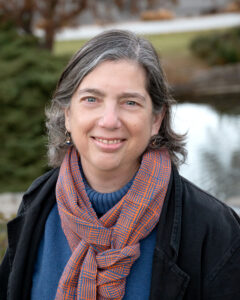
Donna C. Llewellyn (she/her/hers)
Executive Director, Institute for Inclusive & Transformative Scholarship (IFITS), Boise State University
Opening Keynote
Monday, June 19
Donna Crystal Llewellyn received her BA (major in Mathematics and minor in Economics) with High Honors from Swarthmore College in 1980. She went on to earn an MS in Operations Research from Stanford University in 1981 and a Ph.D. in Operations Research from Cornell University in 1984. Donna then studied in Bonn, West Germany with a National Science Foundation Mathematical Sciences Postdoctoral Fellowship while on leave from a tenure track position in the School of Industrial and Systems Engineering (ISyE) at Georgia Institute of Technology. In July 1999, Donna became the Director of the Center for the Enhancement of Teaching and Learning (CETL) at Georgia Tech, and in January 2012 she also became the Associate Vice Provost for Learning Excellence. In January 2015, Donna moved west to become the Executive Director of the new Institute for STEM and Diversity Initiatives, which transitioned into the Institute for Inclusive and Transformative Scholarship (IFITS) in August 2020. Donna’s current interests center around education issues in general, and in particular on increasing access and success of those traditionally underrepresented and/or under-served in STEM higher education.
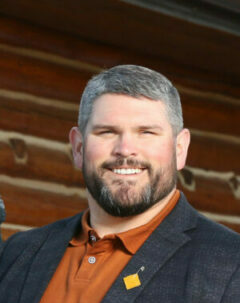
John Desjarlais (he/him/his)
Executive Director of the Indigenous Resource Network; President of the Association of Professional Engineers and Geoscientists of Saskatchewan
Banquet Keynote
Tuesday, June 20
John is Nehinaw (Cree)-Metis from Kaministikominahikoskak (Cumberland House), Saskatchewan. John has a B.Sc. in Mechanical Engineering from the University of Saskatchewan and started his career in 2001 in the mining industry and worked in a variety of roles including E&S, maintenance and reliability engineering management until moving onto executive leadership in economic development and construction. John now serves as the Executive Director of the Indigenous Resource Network as well as President of APEGS. John also has extensive regulatory, volunteer, governance, and civil society experience serving on a variety of boards, committees, and other initiatives culminating into several awards over his career including the Queen’s Platinum Jubilee Medal in 2023.
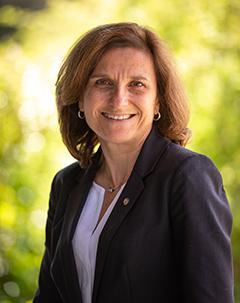
Dr. Elizabeth Croft (she/her/hers)
Vice-President Academic and Provost
University of Victoria
Closing Keynote
Wednesday, June 21
Dr. Elizabeth Croft (she/her) is a visionary and forward-thinking leader with a track record of building inclusive, collegial and collaborative partnerships. On July 1, 2022, she began her five-year term as Vice-President Academic and Provost at UVic.
Dr. Croft holds a BASc in Mechanical Engineering from the University of British Columbia, an MASc in Mechanical Engineering from the University of Waterloo, and a PhD from the University of Toronto. Dr. Croft is recognized internationally as an expert in the field of human-robot interaction.
Before joining UVic, Dr. Croft was Dean of Engineering at Monash University in Melbourne, Australia. Prior to that, she was a tenured full professor in the Department of Mechanical Engineering at the University of British Columbia. With the Faculty of Applied Science, she served as Senior Associate Dean, Associate Dean, Education and Professional Development, and as Associate Head of the Department of Mechanical Engineering. In each of her senior leadership positions, her action-oriented approach has delivered results in areas of importance to our university, including innovative academic programming, reconciliation and decolonization, transformational student experience, and equity, diversity and inclusion.
Sponsors
Sponsorship Packages
Become a CEEA-ACÉG 2023 Contributor
As a contributor you will reach a network of influencers, decision-makers, and likeminded engineering leaders and support the shift in engineering education to:
- Enhance sustainable design offerings in academia
- Develop entrepreneurship education in engineering programs
- Improve diversity and inclusivity informed teaching practices
Sponsorship packages are summarized below, and full information can be found in the Sponsor Brochure.
| Friend | Collaborator | Innovator | Senior Innovator | Partner | |
| $1,000 | $2,000 | $5,000 | $10,000 | $20,000 | |
| Acknowledgement on CEEA-ACÉG website, sponsor page and banners |
• |
• | • | • | • |
| Up to a letter size promotional material at registration | • | • | • | • | |
| Number of conference registrations included | • | •• | ••• | ||
| Sponsored ad on TVs in the conference venue hall | • | • | |||
| Recognition as a coffee break sponsor | • | ||||
| Recognition as a breakfast sponsor | • | ||||
| Recognition as a lunch sponsor | • | ||||
| Recognition as a banquet sponsor | • | ||||
| Inclusion in conference social media/promotional materials | • | ||||
| Access to delegate contact information (subject to delegates’ consent) | • | ||||
| Opportunity to do a 5-minute address at plenary session | • | ||||
| 5 ft x 5 ft space in high traffic area or free registration to 1 conference workshop
|
• | • | |||
| 10 ft x 10 ft space in high traffic area or free registration to 2 conference workshops | • | • |
To discuss sponsorship opportunities or for more information, please contact [email protected].
Our Sponsors
Partner
Senior Innovator
Innovator
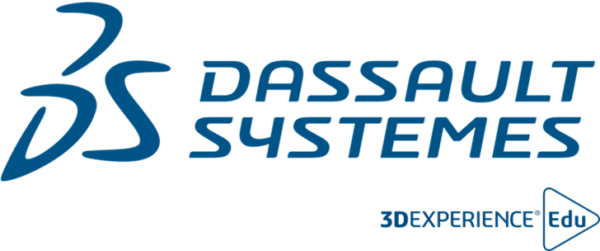 |
 |
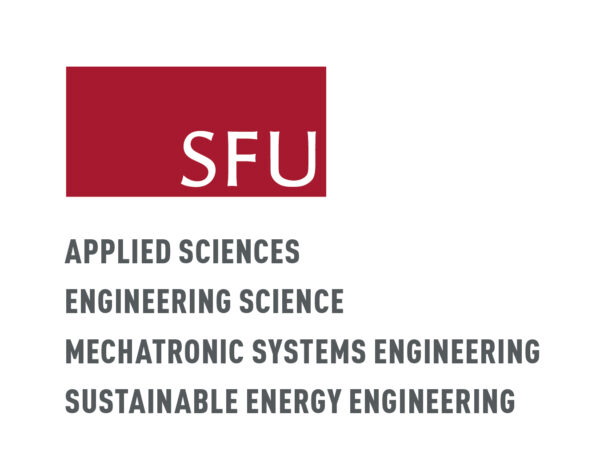 |
 |
Collaborator
 |
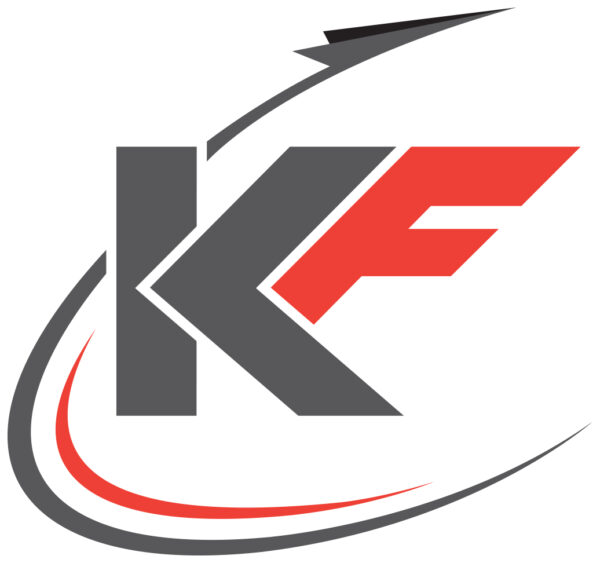 |
|
 |
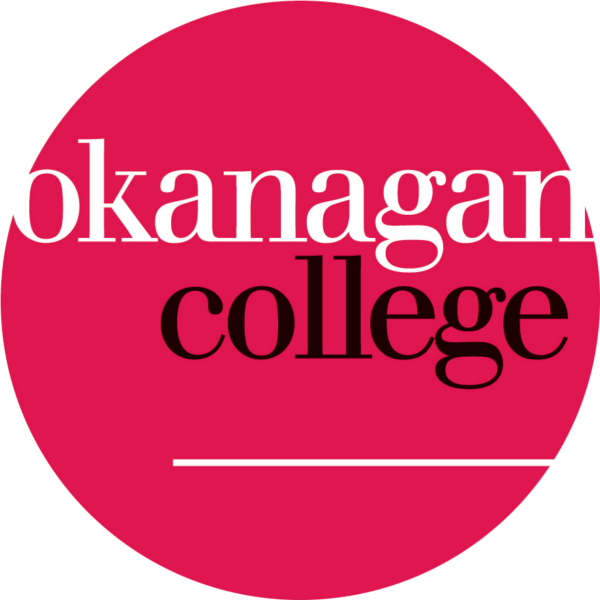 |
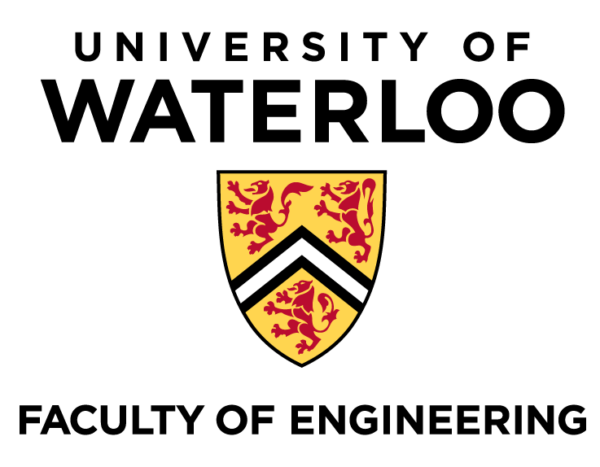 |
Friend
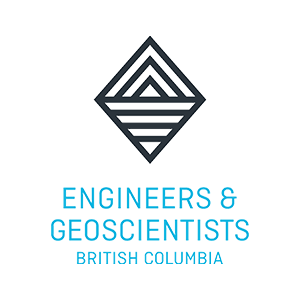 |
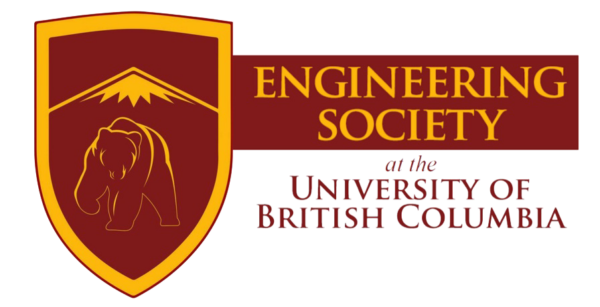 |
||
Exhibitors
Exhibitors
Full information for exhibitors to come.
Non-profit organizations interested in an exhibitor space at CEEA2023 are invited to contact the organizing committee at [email protected] to inquire about opportunities. Requests will be considered on a case-by-case basis, based on availability and alignment with the conference’s theme.
Committee
Questions? Email us
More information about the conference is coming soon. Check the website regularly for more updates.
Organizing Committee
- Conference Chair: Dean Richert, Alon Eisenstein and David Williams
- Technical Chair: Mohammed Tiznobaik
- Logistics Chair: Angelika March and Hassan Iqbal
- Finance Chair: Claire Yan
- Indigenous Relationship Chair: Renee Leboe
- Industry & Sponsorship Chair: Sabine Weyand
- Publicity & PR Chair: Richard Aleong
Please email [email protected] if you have questions.

